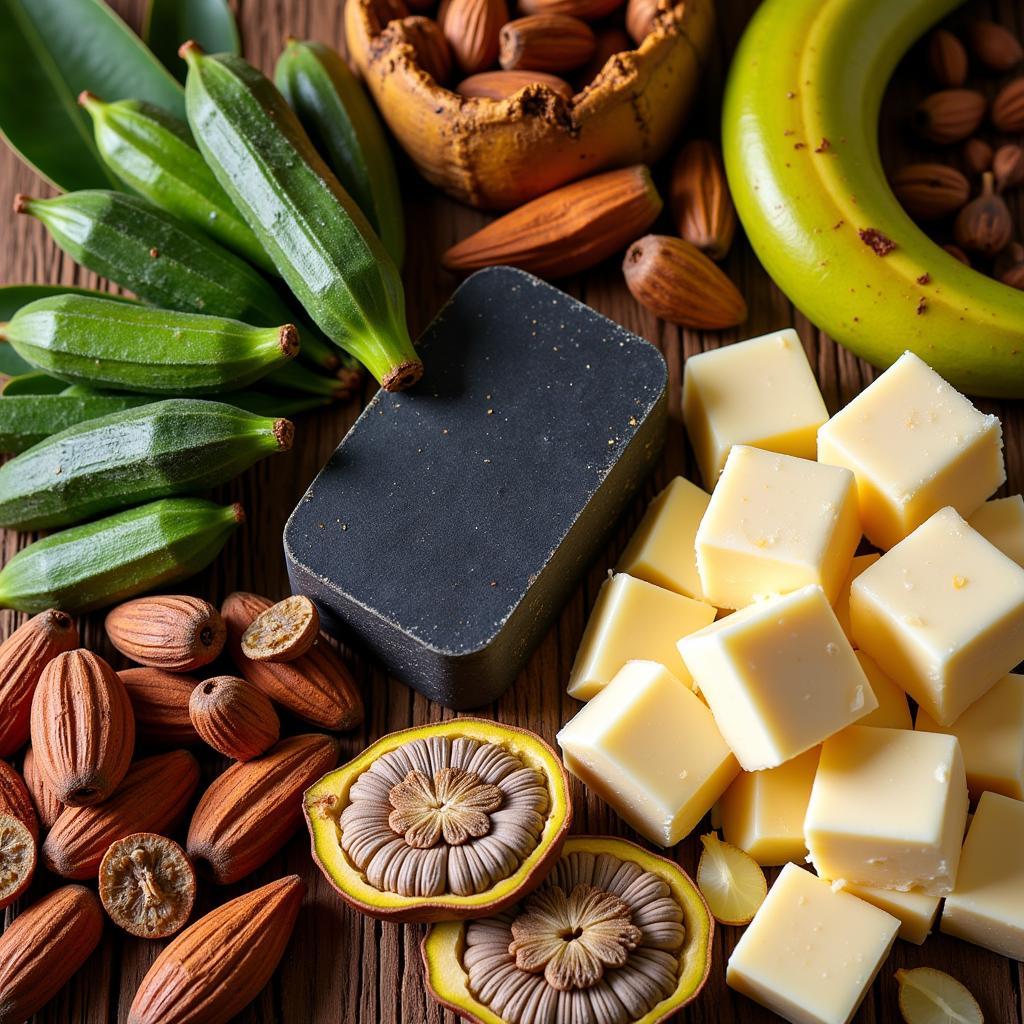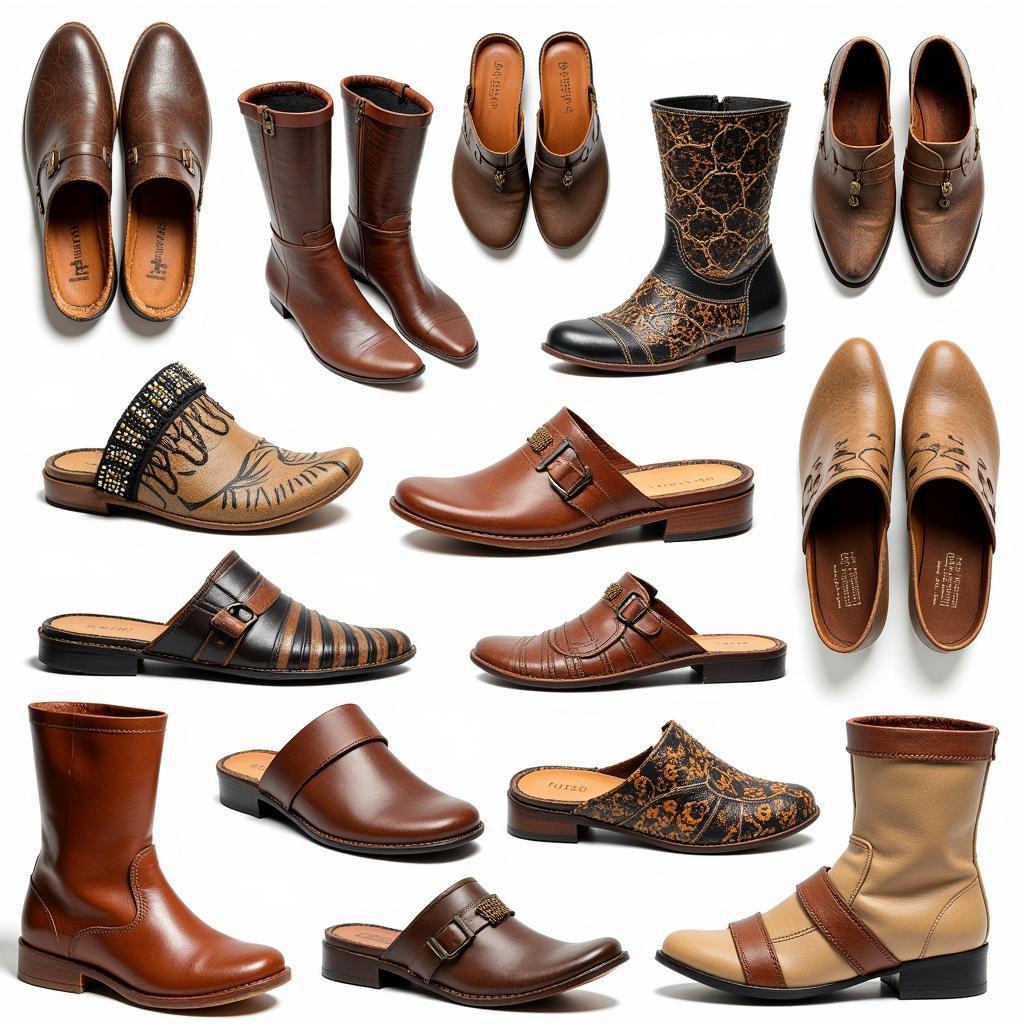African Black Soap for Natural Hair: A Comprehensive Guide
African Black Soap For Natural Hair has become increasingly popular for its purported cleansing and nourishing properties. From its origins in West Africa to its modern-day uses, this article explores everything you need to know about using African black soap for your natural hair journey. african black soap
What is African Black Soap?
African black soap, also known as “black soap” or “Anago soap”, isn’t always black. Its color ranges from dark brown to black, depending on the ingredients and method of production. Traditionally made in West Africa, particularly Ghana, this soap isn’t your typical commercially produced bar. It’s a completely natural product crafted from locally harvested plant materials like plantain skins, cocoa pods, palm leaves, and shea tree bark. These ingredients are sun-dried and roasted, then mixed with water and oils like palm kernel oil, coconut oil, or shea butter. The mixture is then saponified and cured for weeks, resulting in a pure and gentle cleanser.
 African Black Soap Ingredients
African Black Soap Ingredients
Benefits of African Black Soap for Natural Hair
Many natural hair enthusiasts praise African black soap for its numerous benefits:
- Deep Cleansing: African black soap effectively removes dirt, oil, and product buildup without stripping the hair of its natural oils.
- Scalp Health: Its antifungal and antibacterial properties can help soothe scalp irritation, combat dandruff, and promote a healthy scalp environment.
- Improved Hair Growth: By cleansing the scalp and removing buildup, African black soap can help unclog hair follicles, potentially contributing to healthier hair growth.
- Gentle on Sensitive Scalps: Despite its deep cleansing properties, genuine African black soap is typically gentle enough for sensitive scalps.
- Natural and Sustainable: Made from natural and sustainably sourced ingredients, African black soap is an eco-friendly choice for hair care.
How to Use African Black Soap for Natural Hair
Using African black soap for hair can be a bit different than using regular shampoo. Here’s a step-by-step guide:
- Choose Authentic Soap: Make sure you are purchasing authentic African black soap. Look for raw, unrefined bars, often irregular in shape and texture. Avoid products with added fragrances or artificial ingredients.
- Lather Up: Because it’s highly concentrated, it’s best to lather the soap in your hands first before applying it to your hair. This prevents applying too much soap directly to your scalp. african black soap shampoo
- Massage Gently: Massage the lather into your scalp and hair, focusing on areas with buildup. Be gentle to avoid tangles and breakage.
- Rinse Thoroughly: Rinse your hair thoroughly to remove all traces of soap. Residual soap can dry out your hair and scalp.
- Follow with a Conditioner: African black soap can be slightly drying, so follow up with a moisturizing conditioner to replenish moisture.
Potential Drawbacks of African Black Soap
While generally beneficial, African black soap might not be suitable for everyone.
- Drying Effect: Some people find that African black soap can dry out their hair, especially if not followed by a conditioner.
- Difficult to Lather: Raw African black soap can be challenging to lather, particularly in hard water areas. african black soap shampoo recipe
- Authenticity Concerns: The market is flooded with imitation African black soaps, which may contain harsh chemicals that negate the benefits of the authentic product. african black soap shampoo diy
Is African Black Soap Right for My Hair Type?
African black soap can be beneficial for many hair types, but it’s especially popular among those with oily or acne-prone scalps. If you have dry or damaged hair, proceed with caution and consider using it less frequently. Experiment to see what works best for your hair. african black soap and tea tree oil shampoo
Conclusion
African black soap offers a natural and potentially effective way to cleanse and care for natural hair. Its cleansing properties and ability to soothe scalp irritations make it a worthwhile option for many. Remember to use authentic African black soap, follow up with a conditioner, and adjust the frequency of use based on your hair’s response. African black soap can be a valuable addition to your natural hair care routine.
FAQs
- Can I use African black soap every day?
- How do I tell if my African black soap is authentic?
- Can I use African black soap on color-treated hair?
- What are the other uses of African black soap?
- Where can I buy authentic African black soap?
- How long does a bar of African black soap typically last?
- Can African black soap help with hair loss?
For further assistance, contact us at: Phone Number: +255768904061, Email: kaka.mag@gmail.com or visit our location at: Mbarali DC Mawindi, Kangaga, Tanzania. We have a 24/7 customer support team.
